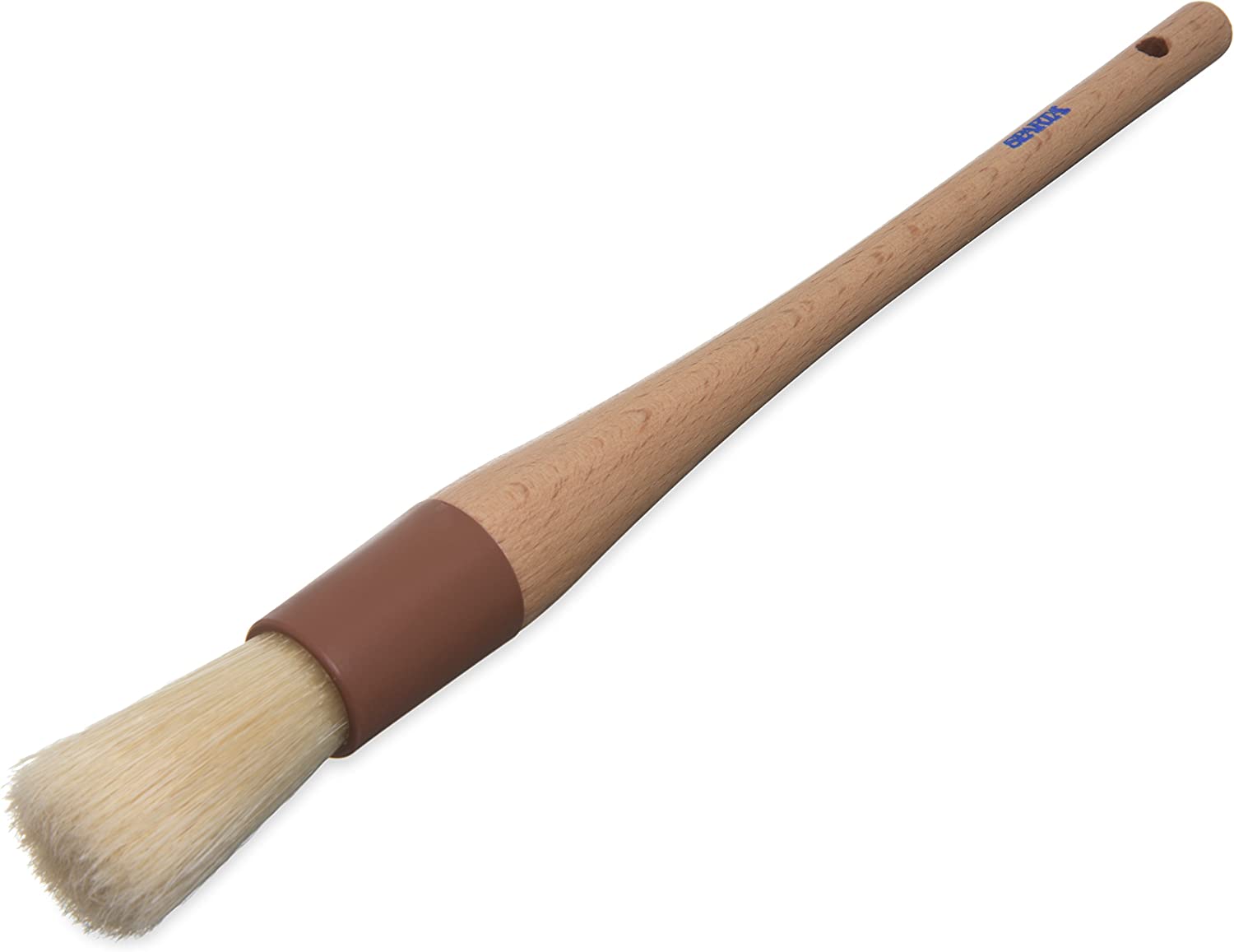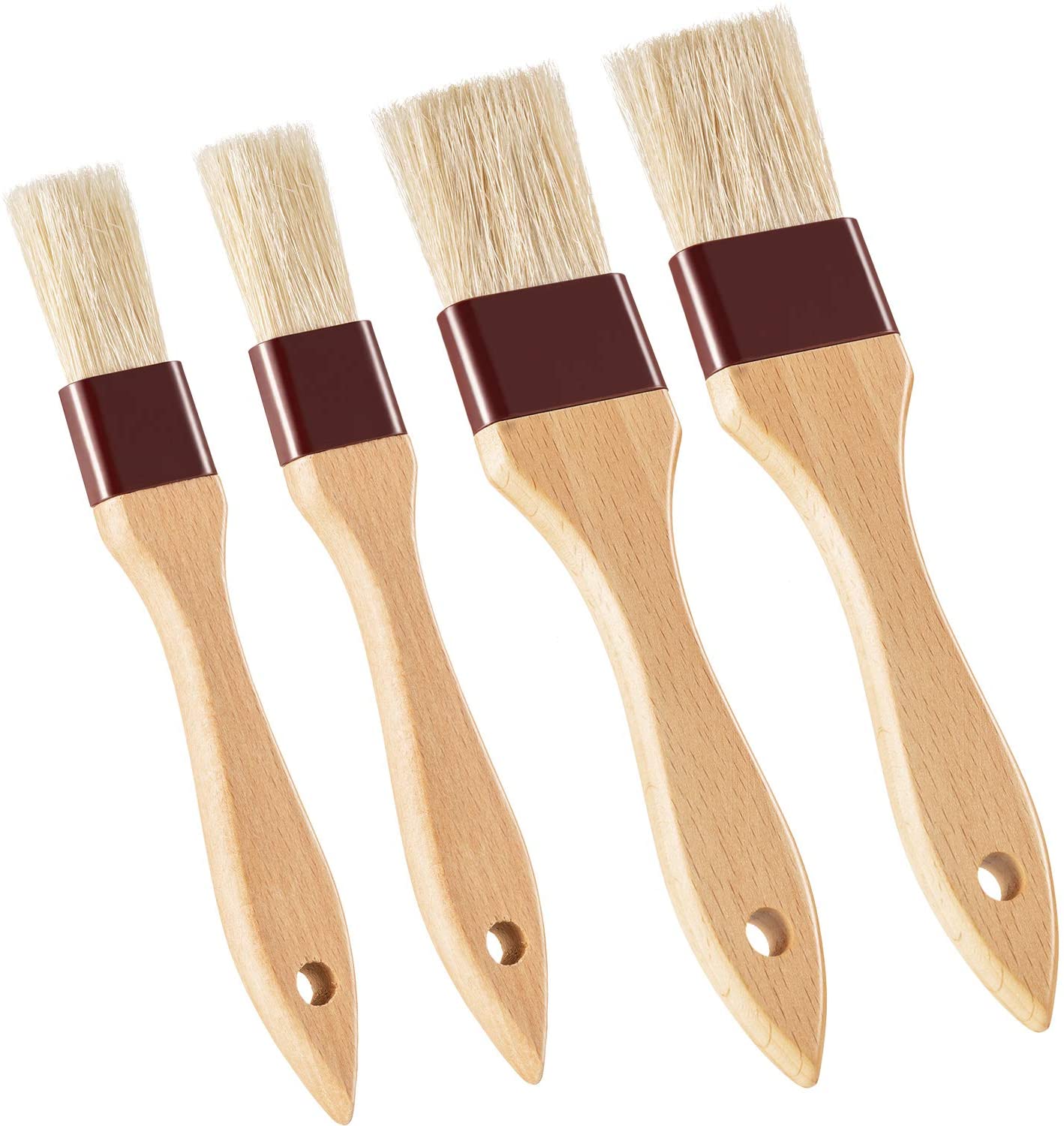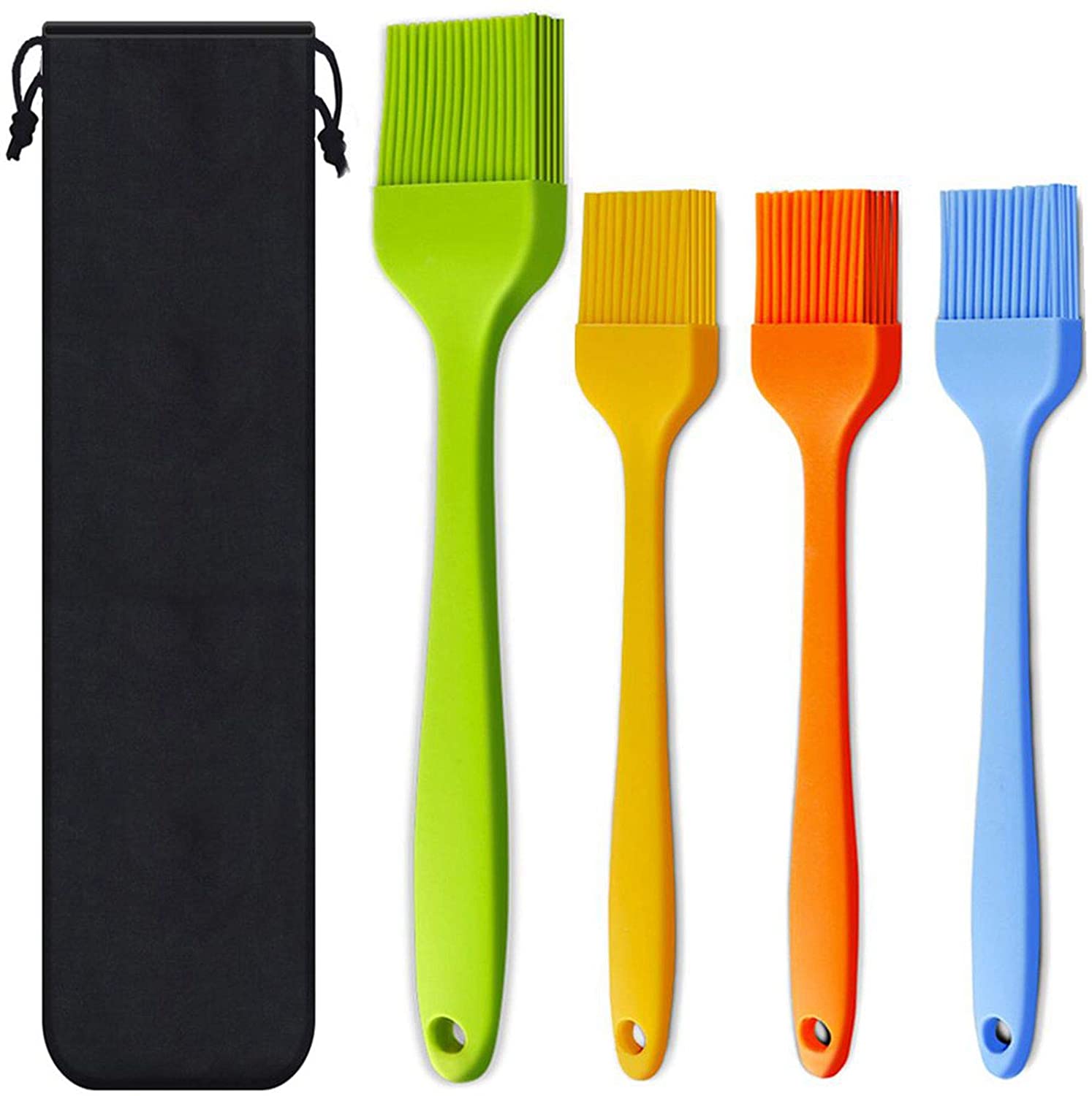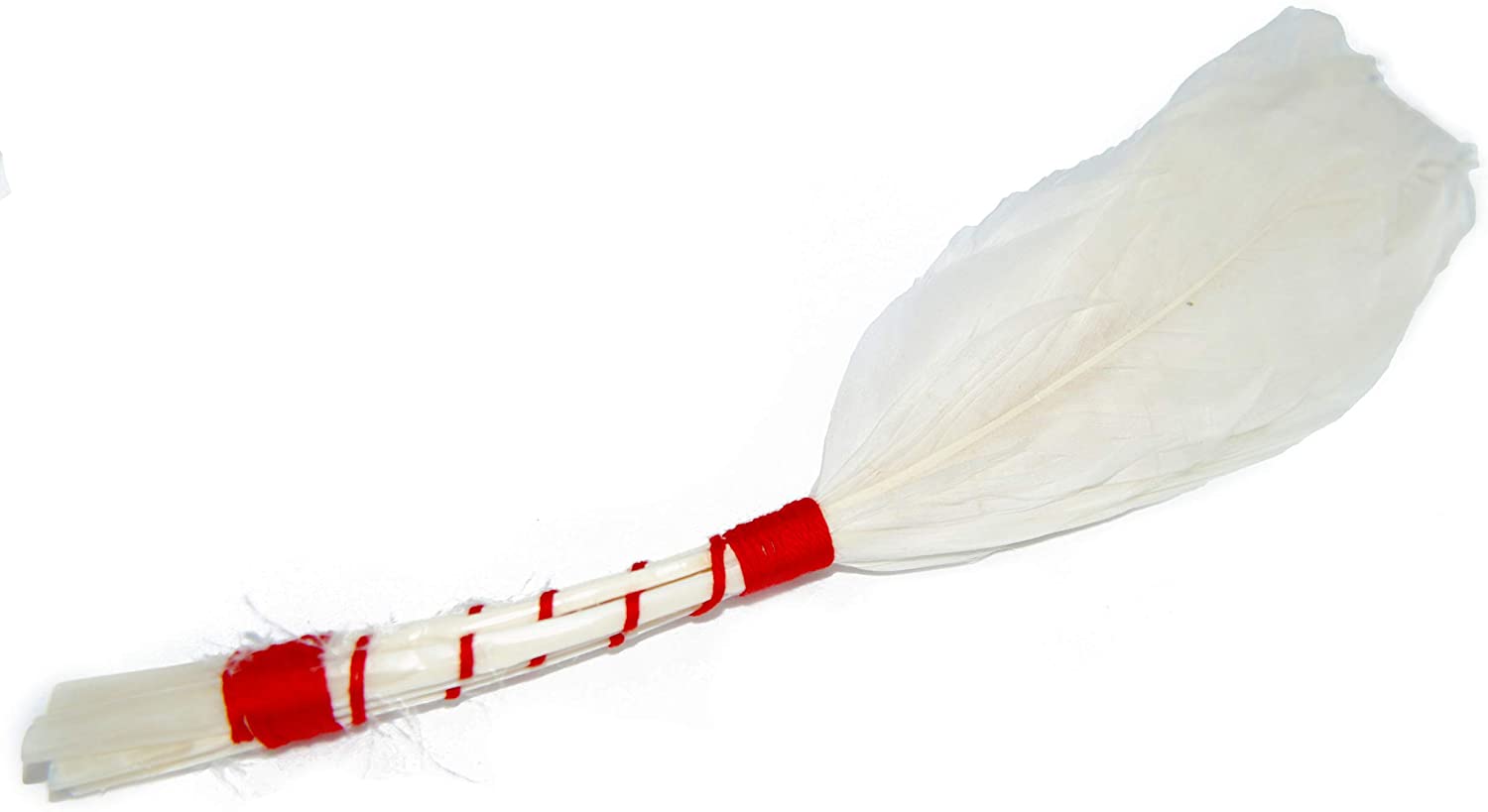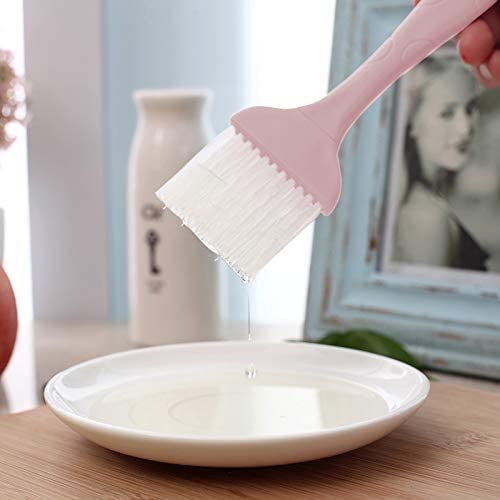Best Pastry Brush
Most experienced home bakers own at least one pastry brush in their cooking arsenal – and some have many. These handy tools are perfect for spreading melted butter or beaten egg to glaze bread dough and other baked goods, as well as spreading marinade on fish, chicken and meat before roasting or barbecuing.
Pastry brushes are more accurate than a spoon or butter knife to make sure the egg wash, glaze or marinade reaches all the nooks and crannies of each food surface. The handle of a pastry brush can be made of solid wood, plastic or silicone, while the bristles themselves are made from a variety of materials – boar or pig bristles, nylon, silicone or feathers.
Each type of bristle comes with pros and cons, and which one you choose often depends on how you intend to use the pastry brush, as well as your personal preference.
We feature five pastry brushes you can purchase online. Read on to find the one that best suits your needs.
Top Pick Best Boar Bristle: Carlisle 4038000-E Sparta Round Basting/Pastry Brush with Boar Bristles
For some savvy bakers, a pastry brush with boar bristles is the only way to go. Butter and sauces stick well to the natural hair and then are easy to brush over the surface of even the most delicate of pastries without damaging the dough.
This 12-inch round pastry brush is made from boar’s hair and has one-inch-wide bristles, ideal to use on pastry, as well as for basting meat, fish and poultry. The hardwood handle is lacquered for durability and long-lasting use, and the bristles are set with epoxy in the nylon ferrule to resist abrasions and cracking.
The professional-quality brush is made from double-boiled, bleached and sterilized boar-hair bristles that are firmly encased in the ferrule to prevent bacteria from harboring in air pockets. Strong and durable, the bristles can resist temperatures up to 500 degrees Fahrenheit, so it is safe for basting food that’s on the barbecue or cooking in the oven.
These bristles are known for its high fluid retention; liquids will stick nicely to the bristles and not drip off. Perfect to add egg washes to pastries and bread dough, and sauces to meat, fish, or vegetables. The convenient hole in the handle makes it easy to hang out of the way when you’re done.
Pros:
- Bristles made from sterilized boar’s hair
- One-inch-wide bristles
- Lacquered wood handle for durability
- Bristles are epoxy set in the ferrule
- Can resist temperatures up to 500 degrees Fahrenheit
Cons:
- Hairs can fall out
- More expensive than other models
Top Pick Best Boar Bristle Set: Boao 4 Pieces Pastry Brushes
While it’s always a good idea to have at least one pastry brush, having more than one makes practical sense. Different sized brush heads can be used for specific functions, especially when working with delicate pastry.
This four-piece pastry brush set includes two, one-inch-wide brushes and two 1 ½-inch-wide brushes, ideal to use for a variety of baking and cooking purposes. The bristles are made from natural, soft, water-resistant boar hair, easy to clean and perfect for holding onto butter, oil and sauces.
The handles are made from solid beech wood contoured for comfort and durability, with a hole at the end to hang on a hook when you’re done for out-of-the-way, convenient storage.
Whether you want to gently oil baked goods or slather sauce on a roast, spread butter, oil or egg liquid on bread and biscuit dough, these brushes are the best way to get it all done for excellent results.
Pros:
- Four brushes, two different sizes
- Ideal for different functions
- Brush made from natural, water-resistant boar hair
- Handles made from solid beech wood
- Durable
Cons:
- Four brushes are more expensive than one
- Hairs may fall ou
Top Pick Best Silicone Set: Consevisen Silicone Basting Pastry Brush
Pastry brushes made from boar’s hair are a popular choice, but some people don’t like the fact that sometimes, the brushes will lose strands of hair. A silicone pastry brush is another favored choice for some home cooks as there is less worry about bristles coming lose and sticking to food. As well, silicone brushes are very heat resistant and can be used to apply marinades and sauces to barbecued foods.
This set of pastry and basting brushes are made from high-quality, food-grade silicone that is BPA-free and safe to use. Included are a large brush with 85 bristles, and three small brushes with 52 bristles each. Versatile, the four different colored brushes can be used for separate tasks to avoid cross-contamination.
The large pastry brush with the long handle is perfect for BBQ grilling, as it keeps your hands away from heat. Heat resistant 446 degrees Fahrenheit, the brush won’t melt or warp.
The three smaller brushes can be used to spread melted butter on baked goods, and oil, mustard, marinades or sauces for cooking and roasting. The one-piece design means the silicone bristles will not shed, fall off or become loose, and are flexible enough to brush delicate pastry without damaging the dough.
The handles have a solid internal steel core for durability and strength as well as brushes that resist bacterial growth. Easy to clean, they can be washed with hot, soapy water or placed in the dishwasher. And when you’re done, they can be hung on hooks with the hole in the handle, or stored in the convenient soft drawstring bag included with the set.
Pros:
- Set of four silicone pastry brushes
- Versatile uses
- Heat resistant up to 446 degrees Fahrenheit
- One-piece design
- Handles have an internal steel core for durability
- Comes with a drawstring bag
Cons:
- May not spread as well as a boar-hair brush
Top Pick Best Overall: Czech Cookbook Goose Feather Pastry & Basting Brush
Many traditional European baking methods include using a feather brush for basting the delicate surface of pastry dough. The fragile nature of some pastries, such as kolaches, require a soft touch when adding a butter or egg glaze, and an old-fashioned goose feather brush does the job right.
We included this thin feather brush on the list because it is the perfect tool for brushing pastries with melted butter, oil, or an egg wash, and it could even be used to baste food on the barbecue, since it is heat resistant and it won’t curl with the heat.
While it’s not recommended to put the feather brush into hot liquid or in the dishwasher, it is easy to clean with mild soap, then pat dry or let air dry before storing for the next time. This goose feather pastry brush may have you rethinking the way you’ve been baking all these years!
Pros:
- All-natural
- Useful for very delicate pastry
- Can also be used to baste food on the barbecue
- Won’t shed
- Affordable
- Long-lasting
Cons:
- Feathers can stain
Top Pick Best Nylon: Corner Cabin Pastry Brush with Nylon Bristles
Many bakers swear by a nylon pastry brush for its soft bristles and ease of application. If you are looking to try a pastry brush with nylon bristles, we recommend this model.
The nylon bristles on this brush are ideal for basting foods and oiling or buttering bakeware, waffle irons and griddles. With a two-inch-wide head, durable bristles and a plastic handle for a comfortable, easy grip, this versatile brush works well with cold and hot fluids.
Easy to store in a kitchen drawer or hang on a hook from the hole at the end of the handle.
Pros:
- Multi-use pastry brush
- Soft nylon bristles
- Heat-resistant bristles
- Bristles set into the handle to prevent shedding
- Affordable
Cons:
- Contains plastic
Things to look out for:
Consider these factors when choosing a pastry brush:
Brush material: The material used to make the bristles of a pastry brush is probably one of the most important factors in deciding which one would be right for you.
Boar bristles: Many experienced bakers prefer the soft, flexibility found in natural boar-hair pastry brushes. The advantages here are that melted butter or egg wash adhere better to the brush, plus the softness of the brush offers a gentle, even coating without damaging delicate pastry dough. Boar bristles are natural and often treated to resist bacterial growth. The downside of this kind of pastry brush is that less expensive models do not set the bristles securely enough into the ferrule of the handle. This can result in what’s known as ‘shedding’ or bristles coming loose and remaining on the surface of the foods being basted or brushed. When looking for this kind of pastry brush, make sure it is constructed securely, so the bristles don’t shed.
As well, if not cleaned properly after each use, the bristles can stick together and harbor bacteria. It’s important to care for it properly by running warm, soapy water through the bristles, rinsing thoroughly, then blotting dry and laying flat to air-out. This will help make it last longer and reduce the possibility of bacteria hiding within the bristles, but the reality is, if you use it often, even a good boar hair bristle brush will wear out and need to be replaced.
Silicone: Many chefs prefer to use a silicone pastry brush since for the most part, the bristles are sturdier and don’t fall out. The silicone brush part can be hard or flexible, and is heat resistant, so if you’re looking for a pastry brush that can also double for a basting brush for foods roasting in the oven or grilling on the barbecue, this is a good choice.
Silicone pastry brushes are also easy to clean and are often dishwasher safe, making it less likely for bacteria to grow, or cross-contamination between foods to occur. The downside of silicone is that if the brush is too stiff, it can rake across a delicate pastry dough and ruin it.
Nylon: Nylon is an alternative to boar hair, as the brush is soft and pliable, excellent to use on delicate dough. The downside of nylon is that the bristles can shed and remain on the food being basted, so it’s important to choose one that is well made, with the bristles set securely into the handle.
The handle: While at first the handle might not seem an important element in choosing a pastry brush, it really is an integral part of the overall functionality of the product.
Wood: Many boar hair bristled brushes have sturdy solid wood handles. Not only are these natural and attractive, they are easy to grip and contribute to the long life of the brush. However, wood handles need to be properly maintained, which means the brush should not be cleaned in the dishwasher, as the high heat will warp and ruin the wooden handle.
Plastic: Many people are trying to reduce the amount of plastic they use but if that is not your case, then plastic is a practical choice, although it’s best to find one that is non-toxic and BPA free. The downside of plastic is that it’s not as strong as wood and can snap or break if it is not thick enough. Also, if it is not a premium quality, heat-resistant plastic, it could melt if used with high heat like basting food on the barbecue.
Silicone: If you plan to use a pastry brush for basting hot food, then a brush with a silicone handle is a good bet, since silicone is a good heat resister and will not melt when exposed to high heats. However, look for a solid handle, since one that’s too flexible may not be sturdy.

